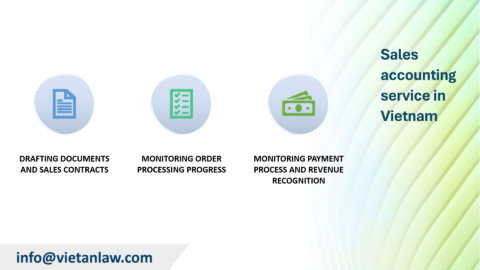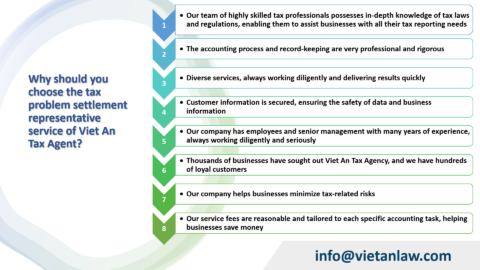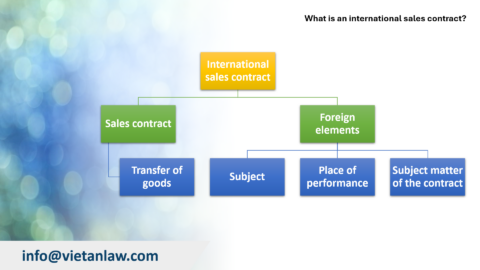In the present era, the liberalization of trade has become an unavoidable trend and is having a significant impact on Vietnamese businesses. However, the reality is that many Vietnamese enterprises still face numerous challenges when drafting, negotiating, and executing joint venture agreements. To address this issue, Viet An Law has compiled some important advice related to drafting joint venture contract in Vietnam as follows.
Joint venture is a widely-used form of investment collaboration in international investment, especially when investors are entering foreign markets for the first time. This is a form in which two or more investors from different countries contribute capital and collaborate to jointly conduct business activities by establishing a new legal entity.
Thus, from the concept of a joint venture and the nature of a joint venture, it can be understood that a joint venture agreement is an agreement between one or more Vietnamese investors and one or more foreign investors to jointly contribute capital for the purpose of conducting business activities by establishing a new legal entity.
A joint venture contract is a unique type of international investment contract. It reflects a cooperative agreement among parties investing from different nationalities and simultaneously serves as the legal basis for establishing a new legal entity, namely, a joint venture enterprise. The joint venture enterprise is established and operates under Vietnamese law, but the joint venture agreement has international elements so it can be governed by foreign law and resolved by foreign arbitration if the parties reach an agreement.
A joint venture contract shares some characteristics with a typical commercial contract. Furthermore, as a long-term investment contract, a joint venture agreement possesses the following distinctive features:
The parties to the contract are Vietnamese investors and foreign investors participating in international investment activities. Investors can be individuals or entities. In other words, the parties to the joint venture agreement are business entities from different countries with the legal capacity as required by relevant laws.
The purpose of a joint venture contract is to establish a joint venture enterprise between the parties to the contract. This enterprise may exist in the form of a limited liability company with two or more members, a joint stock company, or a partnership in accordance with the Law on Enterprises and relevant laws. A joint venture enterprise is a Vietnamese legal entity with Vietnamese nationality.
In terms of its form, the joint venture contract must be in writing and signed in full by the authorized representatives of the joint venture parties. The strict requirement regarding the form of the joint venture agreement, as mentioned above, is reasonable because the joint venture agreement is not only a mere agreement among the parties but also a legal basis for establishing a new legal entity with complex economic activities. Therefore, the written form along with the requirement for signature confirmation is intended to ensure clarity and comprehensiveness of the contract.
In terms of its legal nature, the joint venture contract is a contractual reality. The rights and obligations of the investors participating in the signing of the joint venture contract do not arise immediately upon contract execution but only come into effect when the joint venture contract becomes effective. This is from the date of issuance of the Investment Registration Certificate or Investment License.
Vietnamese law does not specify the content of a joint venture contract. However, in practice, any joint venture contract typically includes the following basic terms:
Below are some points that, while not legally mandatory, are typically addressed by the parties in a joint venture contract to prevent conflicts and ensure the success of the joint venture.
This is a common content found in joint venture contracts, even though it is not the primary content specified by Vietnamese law. This provision aims to provide general definitions and uniform explanations of terms and contract clauses among the parties to avoid conflicts regarding the interpretation of the contract. For example, the parties often include definitions for terms such as “contract,” “term of the joint venture,” “effective date of the contract,” “establishment date,” “licensing authority,” “project,” etc.
The issue of managing and operating the enterprise is a matter of utmost importance, as it relates to the stable development of the business. In a joint venture enterprise, participation in management involves representing the investing parties, and when conflicts arise, reconciling the interests of all parties can be quite challenging. Therefore, the management and operation of the enterprise are crucial aspects that all parties involved in drafting the joint venture contract should pay attention to. These provisions typically include regulations on the General Shareholders’ Meeting, the Board of Directors, the Board of Members, the meeting procedures, and decision-making of these bodies, as well as the company’s Board of Directors.
Because a joint venture contract is an international contract, the legal sources applicable to it become more diverse compared to other contracts. Since a joint venture contract serves as the basis for establishing a legal entity operating within the territory of Vietnam and in accordance with Vietnamese law, the governing law for the joint venture contract is Vietnamese law. Only issues not regulated by Vietnamese law can be subject to foreign law.
However, it is important to note that in cases where international treaties of which Vietnam is a member contain provisions regarding the rights and obligations of the parties in a joint venture contract, the provisions of that international treaty take precedence and are applied.
The above is a detailed article on the issue of drafting joint venture contract in Vietnam. If you have any legal difficulties or concerns related to business law or investment law, please contact Viet An Law for the most specific and detailed advice!




